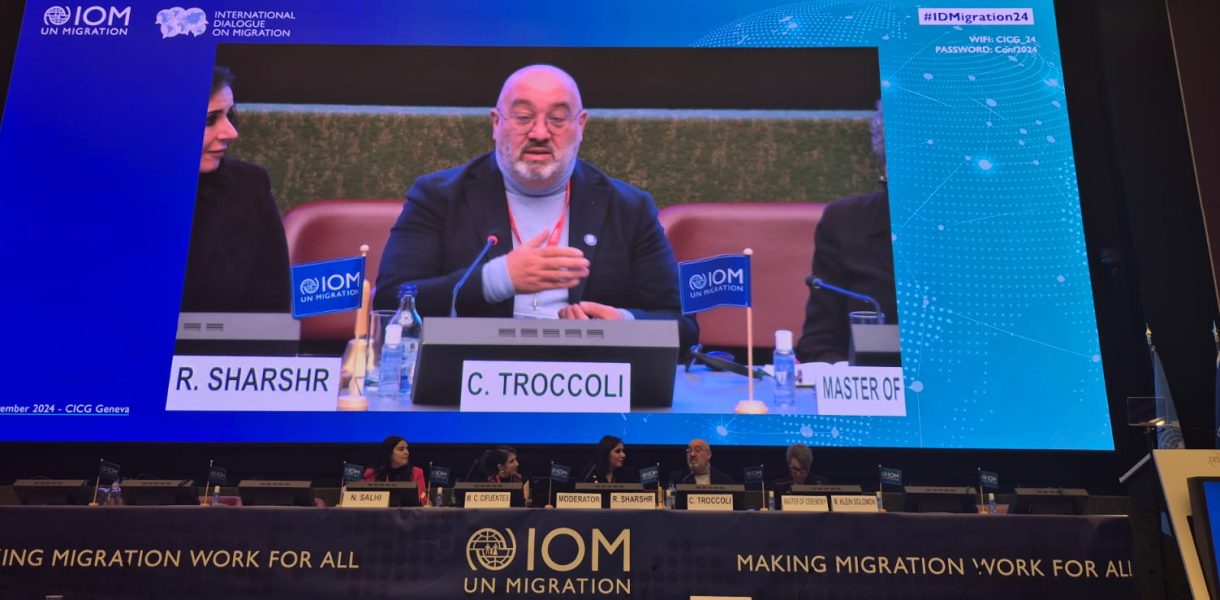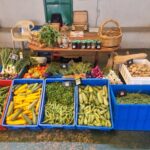Finding Balance – Harnessing the Benefits and Addressing Key Challenges of Regular Migration Pathways
On November 25, 2024, the Second Session of the International Dialogue on Migration took place at the Centre International de Conférences Genève (CICG) in Geneva, Switzerland. Themed “Finding Balance – Harnessing the Benefits and Addressing Key Challenges of Regular Migration Pathways,” this event brought together global leaders, policymakers, and experts to discuss the critical intersection of migration, climate change, and sustainable development.
Key Themes and Objectives
One of the central topics of the conference was the importance of a just and green transition as part of broader commitments under the UNFCCC framework. The discussions emphasized that this transition must be equitable, inclusive, and rooted in human rights principles, ensuring no one is left behind in the shift to net-zero societies.
The role of labor migration emerged as pivotal for achieving a green transition. Migrant workers across all skill levels are critical in meeting the labor demands required to achieve global climate goals. This session aimed to explore strategic pathways for creating employment opportunities that support the green transition while ensuring access to education and vocational training for workers. Discussions also highlighted the potential benefits of facilitating the return of migrant workers to their communities and countries of origin to maximize skill and knowledge transfer. Members of the diaspora were recognized as agents of change, contributing to the promotion of sustainable practices and green transitions in their homelands.
Distinguished Speakers and Key Discussions
The event featured a panel of esteemed speakers:
- Ms. Maria Cristina Cifuentes, Ministry of Environment and Sustainable Development, Government of Colombia
- Mr. Carmelo Troccoli, Director General, World Farmers Market Coalition, Italy
- Ms. Nouha Salhi, IOM Youth Delegate on Climate Migration
Mr. Carmelo Troccoli, in his address, underscored the pivotal role of agriculture in the context of migration and climate change. He highlighted how climate change exacerbates challenges in agriculture, including extreme weather events and rising temperatures, which often force rural populations to migrate. At the same time, agriculture offers a transformative opportunity to combat forced migration by promoting local development, creating jobs, and improving living conditions.
Key Question Addressed:
“Agriculture is an economic sector that can significantly contribute to combating climate change and forced migration. What agricultural development model do you think helps in this process, and what is the role of migrants?”
Mr. Troccoli responded by advocating for sustainable local agriculture. He stressed that promoting local food systems reduces environmental impacts, strengthens local economies, and provides employment while enhancing food security. He also highlighted the success of short supply chains, such as farmers’ markets, as hubs for local food and city-country connections, emphasizing their role in cultural and social integration.
Insights on Migration and Climate Change
The panelists shed light on the complex factors driving migration, including:
- Conflict and Persecution: Wars and violations of human rights displace millions.
- Climate Crises: Extreme weather, desertification, and rising sea levels make rural areas uninhabitable.
- Economic Inequalities: Lack of opportunities in rural areas pushes people toward urban centers.
The staggering reality of 110 million displaced people globally, with nearly 60% in climate-vulnerable countries, underscores the urgency of addressing these challenges. Many displaced individuals come from agricultural backgrounds, forced to abandon their lands due to violence, land grabbing, or economic pressures.
Agriculture as a Solution
The discussions highlighted that agriculture is both a cause of migration and a solution. By investing in sustainable agricultural development, countries can create resilient local economies, reduce forced migration, and support global climate goals. Specific recommendations included:
- Supporting small-scale farmers with access to credit and markets.
- Promoting innovation and vocational training in agriculture.
- Encouraging public-private partnerships for sustainable agricultural projects.
The Italian model of Social Agriculture was cited as an exemplary practice. It integrates migrants, asylum seekers, and marginalized groups into agricultural work, fostering inclusion and social cohesion. Currently, thousands of agricultural enterprises in Italy employ tens of thousands of migrants, offering them opportunities to escape marginalization.
Conclusion
The Second Session of the International Dialogue on Migration 2024 underscored that investing in sustainable agriculture and inclusive labor migration policies is vital for a greener, more equitable future. Agriculture can be a bridge between cultures and a fertile ground for cooperation and solidarity. By addressing the root causes of forced migration and embracing inclusive strategies, we can pave the way for a world where migration is a choice—not an imposition—and where everyone has the opportunity for a dignified life.
This event was a call to action for policymakers, stakeholders, and civil society to harness the transformative potential of migration and agriculture to build sustainable, resilient communities worldwide.






